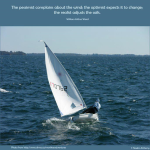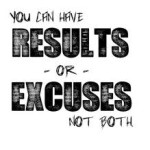In every radio station across America, I’d bet everything I own that an optimist, pessimist and realist can be found inside each building. And despite what your personal feelings might be towards each of them individually, every one of them is necessary to their team’s success.
By definition, an Optimist is someone who usually expects a favorable outcome. A Pessimist is a person who habitually sees or anticipates the worst or is disposed to be gloomy. And the Realist is a person who tends to view or represent things as they really are.
 One of the hardest things to do in this business is recognize how much better you become by being surrounded by people who think and act differently and challenge your thoughts process. Is it annoying at times? Yes. Is your instinct to be around people who operate the same way that you do? Yes! But when you step back and allow yourself to be tested, you realize that different viewpoints from your teammates are essential to your own growth.
One of the hardest things to do in this business is recognize how much better you become by being surrounded by people who think and act differently and challenge your thoughts process. Is it annoying at times? Yes. Is your instinct to be around people who operate the same way that you do? Yes! But when you step back and allow yourself to be tested, you realize that different viewpoints from your teammates are essential to your own growth.
One common mistake that a lot of programmers and personalities make is trying to hire their friends or colleagues who they know won’t challenge them. Sure it might be more comforting and less challenging but does it bring out the best in you? The question I try to answer when hiring someone is “will this person challenge us to be better or just blend in and go with the flow“?
I believe you get better by adding smart talented people who have your best interests in mind yet aren’t afraid to tell you when you have a bad idea or have executed poorly. As a matter of fact, some of the best radio shows and television sitcoms in our lifetime have happened as a result of people from very different backgrounds with very different ideas coming together to create one unified presentation.
 As it applies to a radio station’s setup, I think all three types of these people matter because they provide a great blend and allow you to better understand your listeners. Let’s face it, the audience is very diverse and they have a wide variety of thoughts on the subjects you’re talking about so the more input you have from your colleagues, and the more open minded you are to the different levels of a conversation, the more prepared you’ll be for what you’ll encounter during the course of a show.
As it applies to a radio station’s setup, I think all three types of these people matter because they provide a great blend and allow you to better understand your listeners. Let’s face it, the audience is very diverse and they have a wide variety of thoughts on the subjects you’re talking about so the more input you have from your colleagues, and the more open minded you are to the different levels of a conversation, the more prepared you’ll be for what you’ll encounter during the course of a show.
Those who have worked with me know that I’m passionate and I want to win. I make no apologies for pushing my teams to deliver results. However, while I’m busy offering my views in an intense and realistic way, it’s equally important for me to have my producers and Assistant Program Director offer something opposite of my personality. If there were four or five of me inside the building at the same time, people would likely struggle.
Knowing yourself and how you’re seen by others is very important, especially when you’re managing or hosting a show. If you’re a light hearted personality, you’re going to want a producer, board operator or other contributing member on the show to provide a little more edge so there’s a good understanding of when it’s time to have fun and when it’s time to be serious. If you’re a manager who’s seen as too tough or soft, understanding that perception allows you to play to your strengths while working on ways to improve your weaknesses. It also helps you with figuring out which approach is needed for the different members of your team.
 As for myself, I’d like to think of myself as a realist because I’m not the glass half full guy who never sees the negatives but I’m also not a glass half empty guy who thinks the radio station is going to come up short. I want to hear the truth when we perform poorly and then I want to place my focus on the solution to helping us win. If the news is positive, I want to know what we did to make it happen and then I want to get back to work to try and duplicate that feeling.
As for myself, I’d like to think of myself as a realist because I’m not the glass half full guy who never sees the negatives but I’m also not a glass half empty guy who thinks the radio station is going to come up short. I want to hear the truth when we perform poorly and then I want to place my focus on the solution to helping us win. If the news is positive, I want to know what we did to make it happen and then I want to get back to work to try and duplicate that feeling.
To add to that, I believe it’s important to deliver honest messages to your team. Some folks in our industry fear sharing the truth because they worry that the room will get dejected or advertisers will spend less but based on my experiences, most professional people can handle it. They want to know where they stand so they can continue making improvements. If you only share the positives or negatives with an individual, you’re unlikely to see them continue making adjustments and pushing harder to deliver better results.
To bring this to a close, if you really want to see a team come together and find out what its made of, put a bunch of talented people together who come from different backgrounds inside of a room, and listen to them share their views on how to make your radio station stronger. You’ll see the positive, negative and realistic points of views emerge and you’ll be thankful to have three different points of view to consider.
 In today’s world where we’re faced with a constant pressure to succeed, there’s a huge benefit to adding different perspectives. The more people feel valued in the communication process and the more you surround yourself with different ideas and opinions, the better your operation becomes. So open your mind, take it all in and appreciate the variety of options you have around you. They often lead to a thriving work environment and results that an entire team can be proud of.
In today’s world where we’re faced with a constant pressure to succeed, there’s a huge benefit to adding different perspectives. The more people feel valued in the communication process and the more you surround yourself with different ideas and opinions, the better your operation becomes. So open your mind, take it all in and appreciate the variety of options you have around you. They often lead to a thriving work environment and results that an entire team can be proud of.

Jason Barrett is the President and Founder of Barrett Media since the company was created in September 2015. Prior to its arrival, JB served as a sports radio programmer, launching brands such as 95.7 The Game in San Francisco, and 101 ESPN in St. Louis. He also spent time programming SportsTalk 950 in Philadelphia, 590 The Fan KFNS in St. Louis, and ESPN 1340/1390 in Poughkeepsie, NY. Jason also worked on-air and behind the scenes in local radio at 101.5 WPDH, WTBQ 1110AM, and WPYX 106.5. He also spent two years on the national stage, producing radio shows for ESPN Radio in Bristol, CT. Among them included the Dan Patrick Show, and GameNight.
You can find JB on Twitter @SportsRadioPD. He’s also reachable by email at Jason@BarrettMedia.com.








